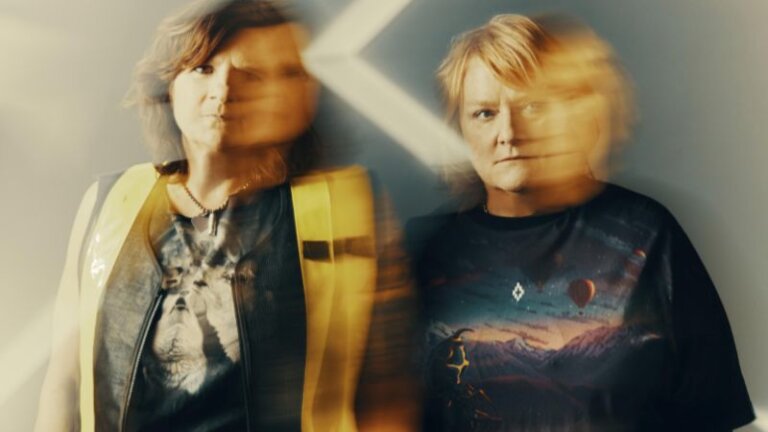Emerging from the fertile musical soil of Atlanta, Georgia during the 1980s, the Indigo Girls, comprising Amy Ray and Emily Saliers, have not only marked their territory in the annals of folk-rock but also used their platform to champion many important social causes through the years. Their self-titled major label debut in 1989, featuring the seminal single Closer to Fine, propelled them from local favorites to national icons, setting a tone of lyrical depth married with harmonious melodies that would define their career.
By 1990, they had clinched a Grammy Award for Best Contemporary Folk Album, which would be the first of several over an illustrious career. This accolade was an acknowledgement of their ability to resonate deeply with broad audiences. Their follow-up albums, Nomads Indians Saints and Rites of Passage, further cemented their status, with tracks like Galileo achieving significant chart success and critical acclaim.
Indigo Girls’ extensive discography is a reflection of their evolution as artists and activists. By the mid-90s, albums like Swamp Ophelia and Shaming of the Sun explored deeper emotional and societal themes, while achieveing notable commercial success, with the former going platinum. Their musical journey was intertwined with their advocacy, particularly for LGBTQ rights and environmental causes.
This era also saw prominent collaorations with the likes of Sarah McLachlan. Their performances together, most notably on the traditional folk song The Water is Wide, blended their distinct voices in a harmonious celebration of folk music. This collaboration was particularly highlighted during the Lilith Fair tours, a concert tour and travelling music festival founded by McLachlan in the late ’90s, aimed at showcasing female musicians and bands. Lilith Fair became a seminal event for female artists in the industry, breaking new ground by exclusively featuring female solo artists and female-led bands.
The turn of the millennium saw the Indigo Girls continue to evolve with albums like Become You and Despite Our Differences, which critics described as one of their most infectious and pop-infused sets. This period also marked a shift towards independence, with the duo parting ways with their long-time label and venturing into self-publishing, allowing them even greater creative freedom.
Their influence extended beyond music, as seen in their active support for causes like the March for Women’s Lives in 2004, where they performed and spoke out for women’s rights. They also co-founded Honor the Earth with Winona LaDuke, raising significant funds and awareness for environmental issues and indigenous rights.
In the 2010s, the Indigo Girls showed no signs of slowing down. Their 14th studio album, One Lost Day, was released in 2015, followed by Look Long in 2020. Each offering new layers of musical complexity and lyrical introspection, these works continued to explore themes of identity, social justice, and personal reflection, resonating with long-time fans and newcomers alike.
The 2023 biographical documentary It’s Only Life After All (dir. Alexandria Bombach), featured at IN-EDIT NL on Saturday, April 20th, provides an intimate glimpse into the lives and legacy of the duo, chronicling over four decades of music, activism, and friendship.
In reflecting on their career, it is clear that the Indigo Girls’ cultural impact is not measured by albums sold or awards won but by the lives they have touched and the conversations they have sparked. Their songs have become anthems for those seeking justice and equality, and their actions have demonstrated the role artists can play in driving societal change.
In an era where the intersection of art and activism is more critical than ever, the Indigo Girls’ legacy is both a roadmap and a beacon. It highlights the possibilities that emerge when talent meets purpose, and music becomes more than sound—it becomes a movement.




